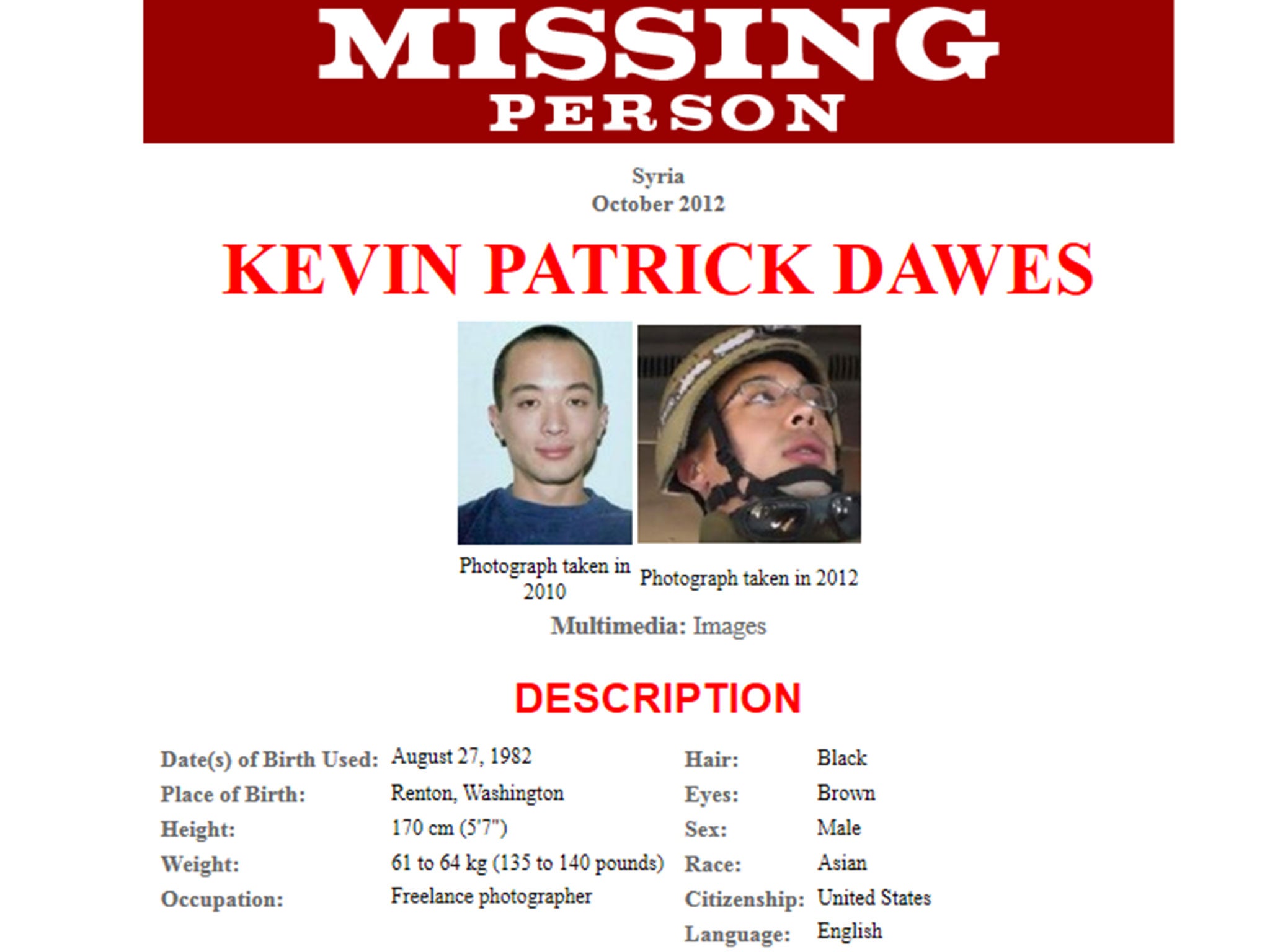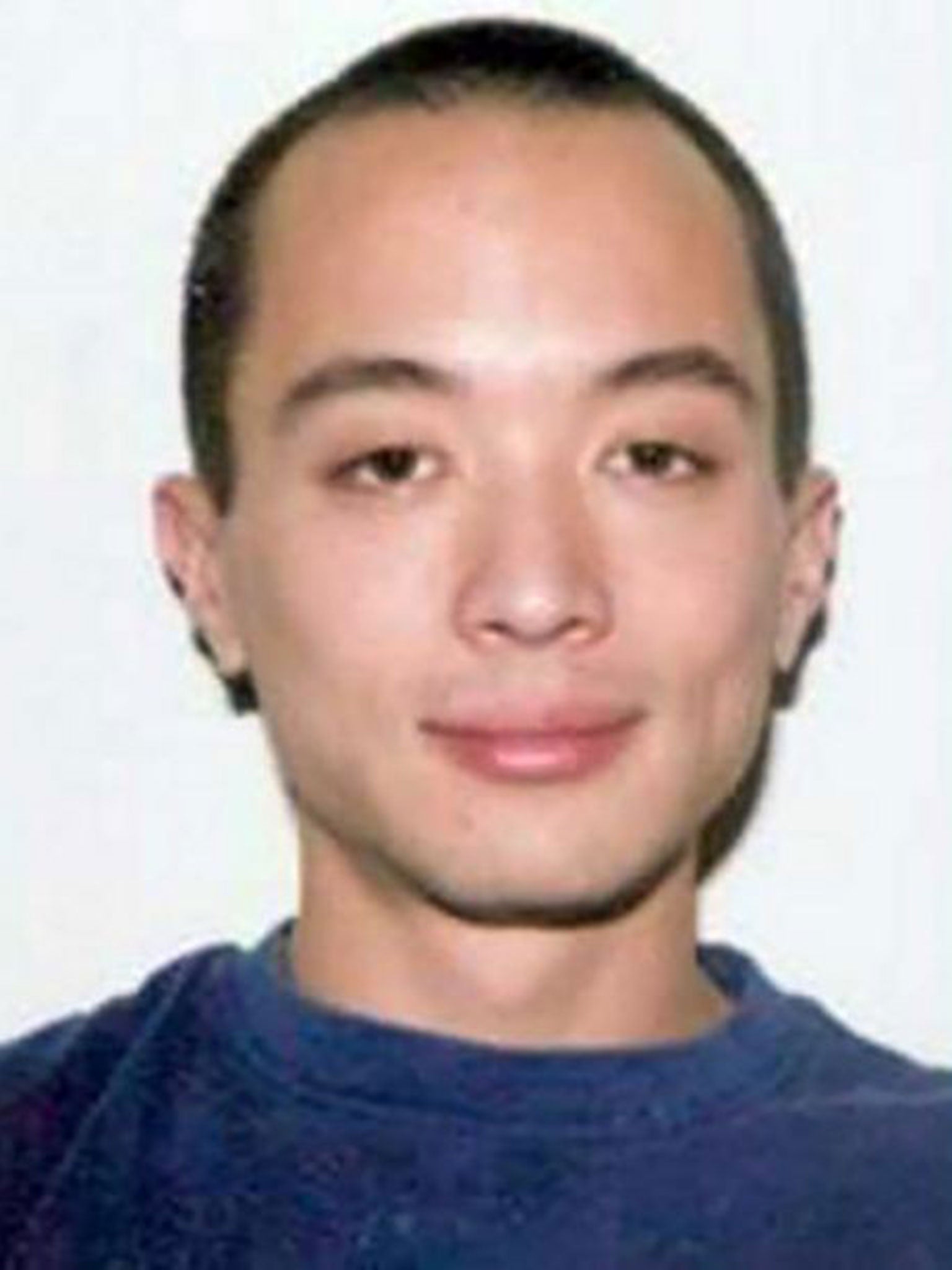Kevin Patrick Dawes: Missing American photographer released by Syrian authorities 'after three years of torture'
There were fears the photographer, who had not been heard from in more than three years, was dead

Your support helps us to tell the story
From reproductive rights to climate change to Big Tech, The Independent is on the ground when the story is developing. Whether it's investigating the financials of Elon Musk's pro-Trump PAC or producing our latest documentary, 'The A Word', which shines a light on the American women fighting for reproductive rights, we know how important it is to parse out the facts from the messaging.
At such a critical moment in US history, we need reporters on the ground. Your donation allows us to keep sending journalists to speak to both sides of the story.
The Independent is trusted by Americans across the entire political spectrum. And unlike many other quality news outlets, we choose not to lock Americans out of our reporting and analysis with paywalls. We believe quality journalism should be available to everyone, paid for by those who can afford it.
Your support makes all the difference.An American photographer has been released from a notorious prison in Syria after disappearing in the country over three years ago.
Friends of Kevin Dawes feared he had died but it has now that he was being held by Bashar al-Assad’s regime in Damascus.
The last known contact with him had been in October 2012, shortly after he travelled to the country as a freelance photographer to document the worsening Syrian civil war.

His last tweets chronicled alleged atrocities by regime forces and linked to a funding page Mr Dawes had set up for medical supplies to take to rebel areas.
John Kirby, a spokesperson for the US State Department, confirmed he had been released by Syrian authorities on Friday.
“The United States continues to work through every possible means to ensure the safe release of US citizens reported missing or taken hostage in Syria,” he added.
“While privacy considerations prevent us from commenting further, we continue to work through our Czech protecting power in Syria to get information on the welfare and whereabouts of Austin Tice and other US citizens missing and detained in Syria.”

Nicholas Henin, a French journalist who was held hostage by Isis for 10 months, said Mr Dawes’ former cellmates told him he had been held in Branch 215.
The prison is run by the government’s Military Intelligence Directorate, and is notorious for the alleged torture of suspected rebels and political dissidents.
An FBI notice for Mr Dawes, 33, said he arrived in Syria from Turkey in September 2012 and went missing a month later.
Eliot Higgins, a visiting research associate at Kings College London and founder of Bellingcat, was one of the last people to communicate with Mr Dawes before he disappeared.
He said he was “in shock” over his release and said the last report he had was that Mr Dawes had been “begging to be killed”.
“I really hope Kevin Dawes get the serious mental health help he needs, especially after two years in an Assad torture site,” Mr Higgins wrote on Twitter.
“I am so so shocked he's still alive, it's like seeing someone rise from the dead, I'm literally shaking.”
Officials told the Washington Post that “many months of negotiations” had secured Mr Dawes’ release and concessions allowing him to receive care and contact his family.
In interviews with Bellingcat, the photographer had described his travels to Libya during the outbreak of the country’s civil war in 2011.
“I am not a man who reclines, when things get bad, into a nice comfy chair of shielded ambivalence,” he said.
“People in the US let horrible s*** happen because they’re just so comfortable."
Join our commenting forum
Join thought-provoking conversations, follow other Independent readers and see their replies
Comments